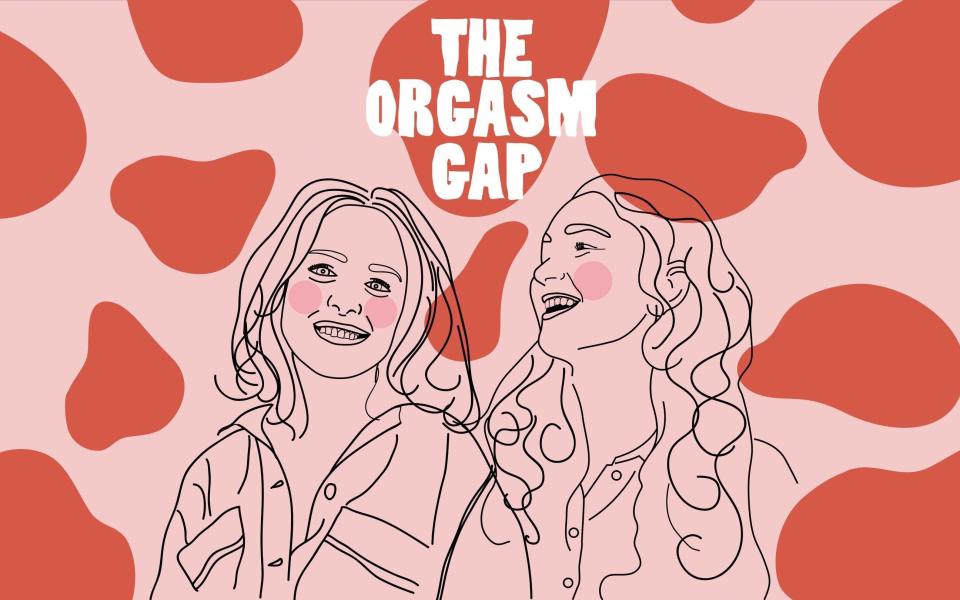The Orgasm Gap: No no no! How women in Britain are missing out in bed

In my experience, there are fewer things more stifling to the concept of sexual pleasure than a Catholic education. When I was at school, one of my clearest memories around sex and relationships education was our teacher telling us that she had waited until marriage to have sex - the implication being that this was the right thing to do. Unsurprisingly, no one in that class, as far as I know, followed suit.
It wasn’t until years later that this conversation came back to mind. I’m now 29, and at 28 I had my first orgasm. In truth, this fact didn’t impress on me too much until an office conversation with my colleague and co-presenter Lily Freeston. In it, she relayed her own experiences of how, until recently, climaxing during sex had been a rarity. What we shared, it seems, was being at the wrong end of what she told me is 'the orgasm gap', an issue so important to us we’ve now made a radio documentary about it for the BBC World Service.
In its simplest terms, the orgasm gap points to what will be no brainer to many of you - that men have more orgasms than women. In 2017, the Family Planning Association did a survey which found that over 80 per cent of heterosexual women said they couldn’t reach orgasm through penetration alone. Another earlier study by the Kinsey Institute, found that of the heterosexual people they surveyed in the US, 95 per cent of men climaxed during sex compared to just 65 per cent of women.
Right now, a topic like this feels timely. For one, sex is an important part of life, and the global increase in sex toy purchases during this pandemic says something about how people are passing the time. But also because, when statutory relationship and sex education is introduced to schools in England in September 2020, sexual pleasure will remain off the agenda.
When we began looking into this, Lily spoke to Lucy Emmerson, Director of Sex Education Forum, who helped draft the new Government teaching around sex and relationships. “I think as a nation, I'm probably not alone in this, there are aspects of sex which we still find very difficult to talk about... We worry that talking about pleasure might encourage sex in some way,” she said.

There’s a range of research out there about female orgasms, but on the whole there seems to be two things required for women to climax: clitoral and mental stimulation.
So to test out how well-equipped we are to understand the basics of female pleasure, we spent a day back in February walking around central London with two diagrams: one of a vulva, and the other of a clitoris. We asked strangers in the street to label them.
Of the people we spoke to that day, about half correctly labelled most features of the vulva. Nobody correctly labelled the clitoris. When we asked what they remembered learning in school about sex, the general response was "not much" beyond the classic teaching of how to put a condom on, often with the aid of a banana.
This is slowly starting to be addressed by schools. Emmerson told us that they plan to "start with some of the fundamentals, like being able to use terms like vulva and penis and testicles and vagina accurately and consistently".
Yet while there is this attempt by schools to get the anatomical basics right, this doesn’t quite cover the cultural and mental side of things - the messages we are given about sex, and the trickle down effect that may have on our ability to fully enjoy it.
One young woman told us that for a long time, when it came to sex, her focus had been on pleasing as opposed to being pleased. That was what felt normal to her.
In sex education, the overarching message, if you’re a young woman, has been about protecting yourself. Protecting yourself from getting pregnant. Protecting yourself from feeling pressured to have sex. While the importance of these messages is not to be underplayed, they’re just one part in the whole story on sex. An absence of teaching around pleasure, and one’s right to it, runs the risk of keeping the orgasm gap firmly in place.
It’s a gap that, if not filled by schools, risks being further widened by the majority of pornography out there, which overwhelmingly portrays women as vehicles to men’s pleasure. And these aren’t just our thoughts. In a recent survey commissioned for the BBC Three series Porn Laid Bare – which asked more than 1,000 young people in Great Britain about their relationship to pornography – 50 per cent of female respondents expressed fears that it dehumanised women.
When it comes to learning about sex in schools, Emmerson told us that in a survey they did with young people, when asked which aspects of relationships and sex education were most neglected, pleasure was top of the list.
Yet for now, we’re still some way off talking openly about it. But Emmerson is hopeful things will change, even if not just yet. “They've got to have teachers that want to teach this subject. Who are given the opportunity to teach it, to develop their confidence, their competence," she said. "It's got to happen, but it's probably going to take a little bit more time.”
The Orgasm Gap airs Saturday 30th May, 7pm on the BBC World Service


